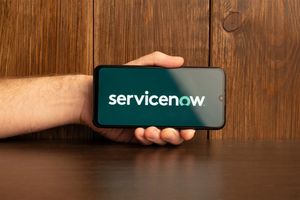If you’re a Millennial, it’s no secret that retirement is not what it used to be. A recent study showed that most Millennials think you need at least $1.7 million in savings before you can retire. It’s no surprise most Millennials don’t expect to retire until they are 70 years old or older.
Luckily, hitting almost $2 million in retirement savings isn’t as staggering as it seems. You just need a plan and discipline to get there. Here’s how to do it.
Get your finances in order
Getting your debt under control is the first step, as paying interest on things you’ve already purchased is just throwing money away. Start by researching your options, like debt reduction strategies or consolidation loans. There are many myths out there about debt management that can wreck your finances, so research verified debt consolidation facts and study the data to find out which strategy will work best for your finances.
Divert funds into appreciating assets
Appreciating assets means buying assets that will increase in value over time. This could be real estate, stocks, or mutual funds (depending on the market outlook). The key is finding an asset class that you are comfortable with, and that has a high potential for growth.
Education is also an appreciating asset as it helps you find better jobs, makes you more marketable, and opens doors to opportunities you never thought possible.
Live below your means
This is one of the most important lessons to learn if you want to retire comfortably. This will help reduce your monthly expenses and put more money into savings. Not only that, but it will also make you happier in the long run because you won’t be stressed about money.
Consider alternative retirement plans
Not everyone wants to retire as early as 70. Some seniors may want to stay employed longer, or they may choose to work part-time but continue their retirement savings plan. There’s also the option of retiring from the traditional workforce and working for yourself as a freelancer, consultant, or entrepreneur. With these options, you’re still earning money while technically staying “retired.”
It’s all about what “retirement” means to you. If you expect to work in some fashion for as long as you’re capable, alternative retirement could happen sooner than you think.
Take advantage of tax breaks
There are a lot of tax breaks you can take advantage of to help you hit that $1.7 million retirement savings goal. For example, contributing to a tax-advantaged 401k or IRA is always a good idea, and many employers also offer matching contributions. You can also deduct mortgage interest, state and local taxes, and charitable donations from your taxable income but consult a tax professional to be sure you’re doing things right.
Utilize compound interest
Compound interest is one of the most powerful tools to accumulate wealth. It works like this: The more liquidity (cash) a bank has on hand, the more solvent they are as a financial firm, so it’s to their benefit that you leave your money to sit in their account as much as possible.
So they’ll make you a deal: If you let your money sit in an account of theirs and promise not to touch it very much, they’ll pay you a percentage back as a thanks. So, if you have $100 in a savings account with an interest rate of 2% and keep that $100 in the account for 30 days, you’ll have $102 after your statement closes.
But now it’s the next month, and you have $102 the bank has to pay interest on. Over time, the interest you’ve already been paid accrues more interest, giving you more money without anything extra on your end. And if you keep putting money in interest-bearing accounts, your interest will accrue even higher.
The bottom line
Invest wisely and live well on less money to guarantee a comfortable retirement. By following these tips, you can ensure that your hard-earned savings end up in your retirement account instead of your credit card bill.
Contact Information:
Name: Michael Bertini
Email: michael.bertini@iquanti.com
Job Title: Consultant






